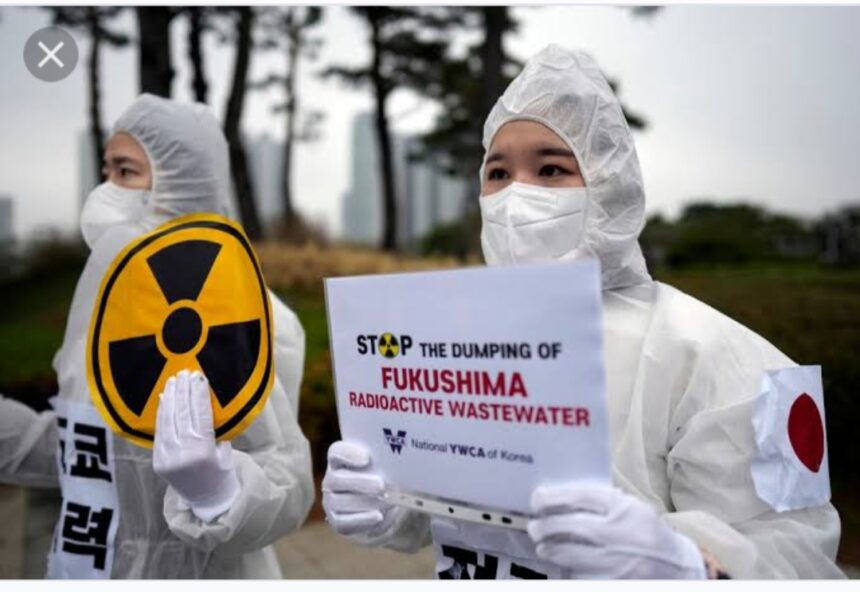Amidst heightened global concerns and protests, Japan’s Fukushima nuclear power plant recently commenced the discharge of treated water into the Pacific Ocean, stirring controversy and garnering international attention. Notably, rigorous tests of seawater conducted by the environment ministry in the vicinity of the beleaguered plant have resoundingly declared the absence of any detectable radioactivity. This revelation arrives merely days after the initiation of water release that employed treated coolant from damaged reactors for cooling purposes.
The discharge of water from the Fukushima facility commenced on Thursday, with the decision sparking fervent debates not only within Japan but also across neighboring countries, notably China. An explicit expression of dissent, China promptly imposed a ban on the import of aquatic products from Japan, signaling the gravity of apprehensions surrounding this development.
Despite apprehensions, both Japanese authorities and scientific bodies advocate that the discharged water is devoid of significant radiological risks. Rigorous filtration methods are employed to eliminate a substantial portion of radioactive elements, barring tritium—an isotope of hydrogen with radioactive properties. Addressing the challenge posed by tritium, Japan undertakes a dilution process to bring tritium levels below prescribed regulatory thresholds.
Safeguarding public health and environmental integrity remains paramount, leading the environment ministry to diligently conduct tests at 11 distinct points surrounding the Fukushima plant. Astonishingly, the findings registered concentrations of tritium that lie below the lower limit of detection, at 7 to 8 becquerels of tritium per litre. These findings substantiate the assertion that any discernible impact on human health or the environment is unwarranted.
Promising an unparalleled degree of objectivity, transparency, and credibility, Environment Minister Akihiro Nishimura underscores the commitment to vigilant monitoring. To uphold the nation’s prestige and counter adverse ramifications, these tests will be consistently reported for the ensuing three months, at minimum, assuring the population of Japan and beyond.
Simultaneously, the Japanese fisheries agency assures that preliminary tests on fish near the Fukushima plant demonstrate no anomalies, corroborating the contention of water safety. Tokyo Electric Power Co (Tepco), the plant’s operator, corroborated the water’s quality on Sunday, emphasizing its compliance with stringent thresholds. As Japan continues its gradual water release, meticulous documentation from multiple sources paints a picture of vigilance and adherence to health and environmental parameters, mitigating concerns raised on the international stage.




